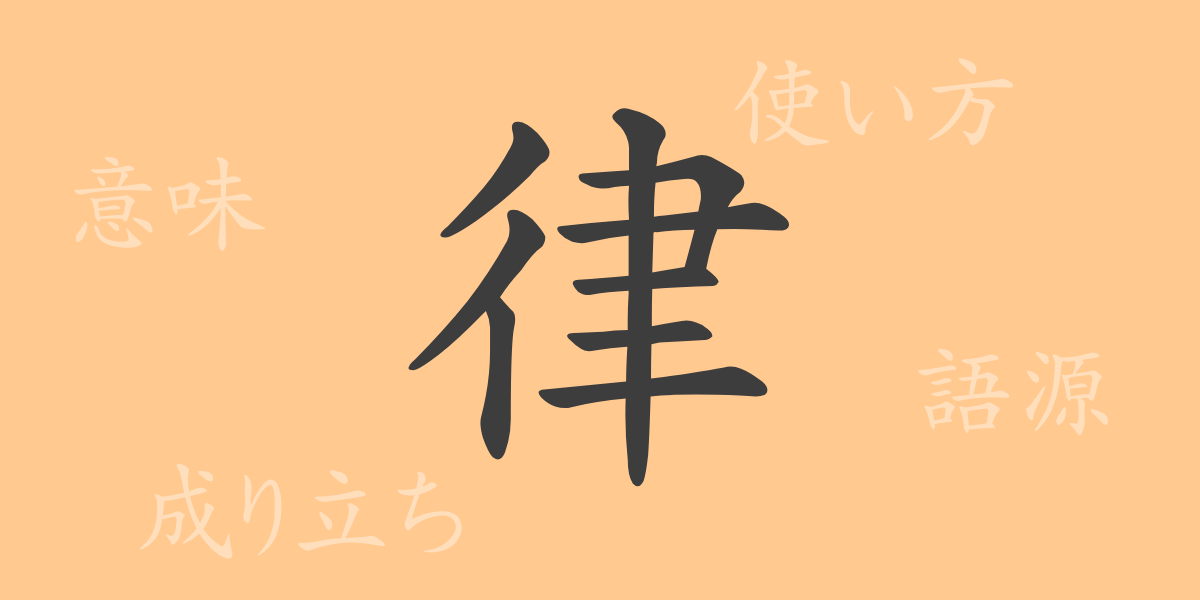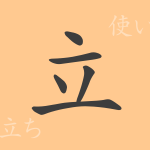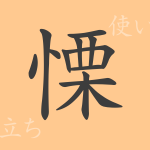In Japanese writing, each character carries immense weight and meaning. Among them, the kanji “律” (ritsu) exudes a unique presence that evokes a sense of order and rules. In this article, we delve into the profound world of “律” (ritsu), exploring its origins, modern usage, and related idioms and proverbs. While keeping SEO in mind, let’s unravel the full scope of the commonly used Japanese kanji “律” (ritsu).
Origin of 律 (ritsu)
The kanji “律” (ritsu) originated as a term indicating laws and musical rhythms in ancient China. It evolved from the pictographic oracle bone script over thousands of years to its current form. “律” (ritsu) has been used in Japan since ancient times to signify standards for establishing laws and maintaining order.
Meaning and Usage of 律 (ritsu)
The character “律” (ritsu) primarily represents concepts related to laws, order, and rhythm, such as “法律” (houritsu – law), “規律” (kiritsu – discipline), and “節律” (setsuritsu – rhythm). It is also used to denote norms for human behavior and mind, implying internal order and self-control. Common usages include “律する” (ritsuru – to regulate), “律儀” (richigi – honest and faithful), and “律速” (rissoku – maintaining a constant speed), where it functions as a verb or an adjectival noun.
Reading, Stroke Count, and Radical of 律 (ritsu)
Here is the basic information about the kanji “律” (ritsu):
- Reading: On-yomi (音読み) readings are “リツ” (ritsu) and “リチ” (richi); there are no Kun-yomi (訓読み) readings.
- Stroke count: 9 strokes
- Radical: 律部 (ritsubu)
Idioms, Phrases, and Proverbs Using 律 (ritsu) and Their Meanings
Here are some idioms and phrases that include “律” (ritsu):
- 法律 (houritsu): The norms and systems established as laws.
- 規律 (kiritsu): Rules and order to be observed in social life.
- 律儀 (richigi): Being orderly and sincere.
- 律速 (rissoku): Maintaining a constant speed.
- 一律 (ichiritsu): Being uniform in all aspects.
These idioms and phrases reflect the meanings of “律” (ritsu) such as “rules,” “order,” and “uniformity.”
Summary of 律 (ritsu)
The kanji “律” (ritsu) symbolizes order and norms, as its form suggests. From ancient times to the present, it has been a cherished concept in people’s lives, embodied in numerous idioms and proverbs. The presence of “律” (ritsu) influences not only laws and music but also the inner aspects of the human mind, contributing to the deep richness of the Japanese language.

























